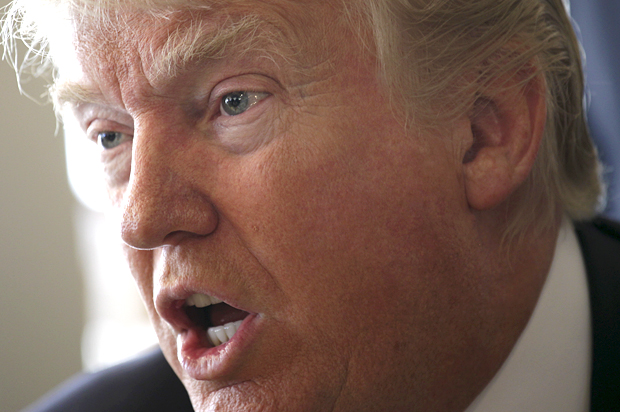This cycle has been rough on Republican mega-donors. Pretty much every candidate they’ve lined up behind – Scott Walker, Jeb Bush, Marco Rubio – has been brought low by Donald Trump. They’re under attack from voters who see their influence as pernicious and disqualifying. Everywhere they look, they face questions and doubts about their influence and the effectiveness of their lavish political spending. It’s a crisis of confidence for America’s super rich and politically conservative masters of the universe.
In an effort to brighten their spirits, Al Hoffman Jr. (George W. Bush’s ambassador to Portugal and himself a GOP mega-donor) has penned an op-ed for USA Today arguing that, contrary to what the current political environment might suggest, big donors are critical component to a healthy American democracy. Hoffman (who donated over $1 million to Jeb Bush’s super PAC, Right to Rise) makes the case that campaigns that are powered by big donors are actually better and more responsible because those donors “often serve as an executive board of sorts, challenging campaigns to act worthy of their investment.” The counterexample to this phenomenon, he argues, is Donald Trump, who has no soberly responsible tycoons in his camp and thus “is without restraint. He is free to agitate and feed chaos. In business and politics alike, oversight is a good thing. It keeps the ship in calmer waters.”
What would that “restraint” look like? Hoffman explains:
Large donors can insist on accountability. If a campaign is wasting money on frivolous expenses, they can object. If a candidate says something overly hateful or extreme, they can walk. They often serve as an executive board of sorts, challenging campaigns to act worthy of their investment.
“Overly hateful” is a fun turn of phrase and it gets to the fatal weakness in this argument: donors are poor agents of accountability because they are literally invested in the success of the campaign. A candidate statement that normal people might find “overly hateful” a donor might brush aside because he really wants his tax rates lowered or he’s very eager to see some regulations gutted. Or, the donor might increase his giving to fund a series of ads to help the candidate improve his image and move past a patch of rough press. In the face of a nasty gaffe, a candidates’ wealthy donors could see the sunk-cost fallacy come into play: they’ve invested so much already that they’re obligated to invest more to try and keep the ship afloat.
Another possibility is that donors might agree with a statement that others find “overly hateful.” Rich people are just as prone to eccentricity and just as likely to hold objectively terrible opinions as normal folks, but they have the ability to (sometimes single-handedly) keep alive the campaigns of “overly hateful” candidates.
The flawed assumption that powers Hoffman’s premise is that the super-rich are, by virtue of their super-richness, good and responsible stewards of the political system. But in making his case, all Hoffman has done is demonstrate how the obscenely rich are even better positioned to have their interests represented than is commonly understood. They buy access so that they can push their preferred agendas on their hand-picked candidate, and they buy influence to make sure their pet candidate behaves in a way that (they believe) best guarantees their election.
One last thing I’ll note about Hoffman’s column is the one name that does not appear in it: Bernie Sanders. The Sanders campaign is a fundraising juggernaut, and it raises all that money without big-money donors, without armies of bundlers, and without high-roller fundraising events. Like Trump, Sanders exists “without restraint” from big-money interests and lacks “oversight” from America’s wealthy. But Hoffman couldn’t find even a few words to say about him, likely because the Sanders model undermines his thesis that a healthy democracy requires the steadying hand of America’s moneyed elite.

